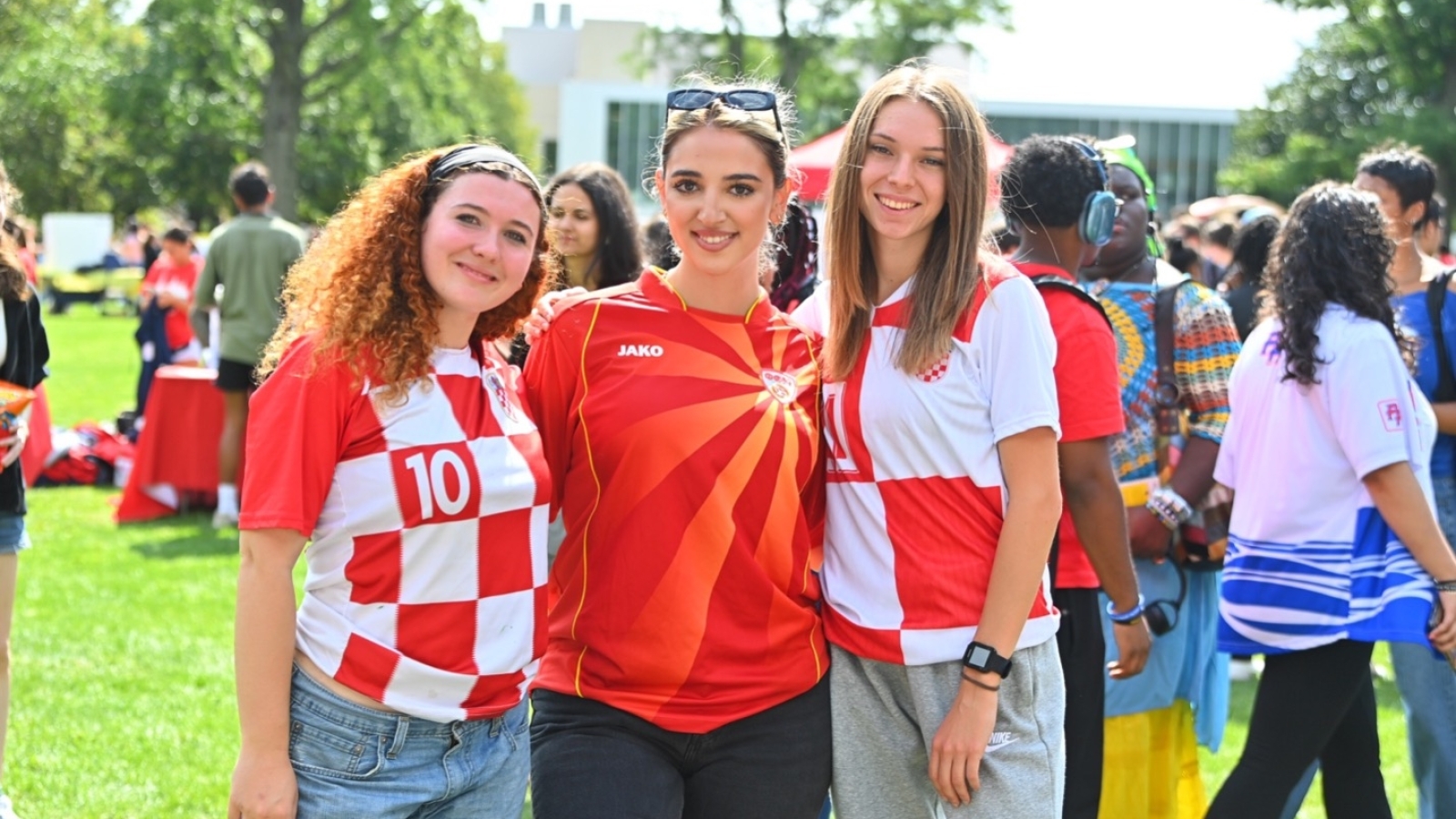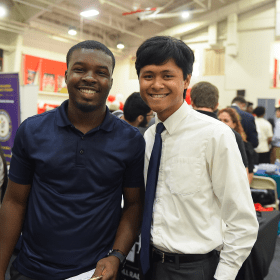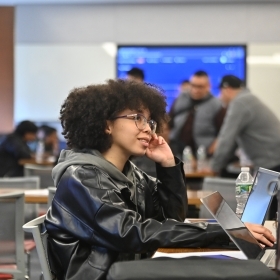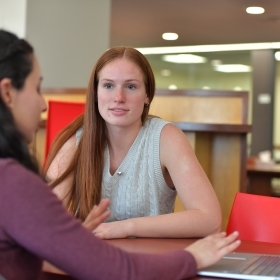How Getting Involved in Campus Life Made Me Career-Ready: A Q&A with Sophia Feeney
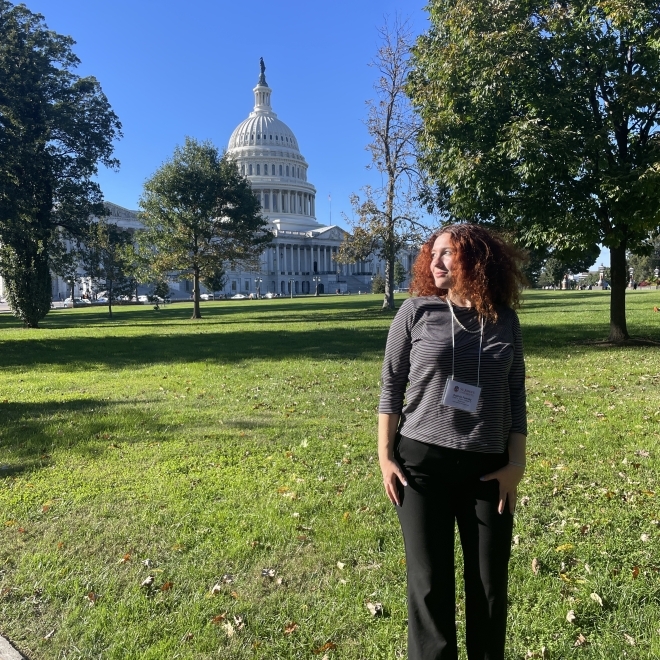
In this Q&A, Sophia reflects on how her college journey has helped her grow—and shares advice for students hoping to turn their college years into meaningful career momentum.
If you have ever questioned the rewards of getting involved on campus, consider the experience of Sophia Feeney, a third-year International Management major at St. John’s University. By jumping into student organizations, building mentorships, and leaning into hands-on opportunities, she unlocked experiences that helped her land a highly competitive internship.
Getting Involved: The First Step Toward Career Readiness
What first inspired you to get involved in campus life?
A few key moments sparked my involvement. One was joining the Croatian Club (now the Balkan Club) early in my first year. Networking with the students on the E-Board and learning about their involvement made me realize the many opportunities there were.
Another significant influence was a summer program with the Office of International Education. I met upper-level students doing incredible things—leading, serving, and traveling—and it pushed me to explore more and get involved in different ways.
Building Skills Through Campus Experiences and Support
How has being involved in clubs and organizations helped you grow personally and professionally?
My involvement in roles such as Career Peer, Student Ambassador, and various student organizations has profoundly shaped my personal and professional growth. These experiences have honed my leadership skills, improving my ability to communicate effectively, organize, and manage my time. They've also opened doors to new connections and opportunities, allowing me to share my story and inspire others to get involved.
What key skills have you developed through your involvement, and how do you see them supporting your future?
One of the most significant skills I’ve cultivated is communication. Effective communication is essential in any professional setting, and my experiences as a student leader have significantly refined this skill.
My involvement at St. John’s has made me more well-rounded and culturally aware. Participating in activities and groups, like plunges and Campus Ministry, has further enhanced my ability to listen attentively and approach service with intentionality and compassion.
How has campus life made the difference in helping you prepare for your career?
One campus resource that has had a huge impact on my professional development is the University Career Services office. With their support, I joined an Academic Internship Visit (AIV) trip, received scholarships, and found the connections that eventually led to securing a summer internship at the National Nuclear Security Administration (NNSA) in Washington, DC.
Can you share more about your AIV DC trip and how it helped you land a summer internship?
During the trip, I attended panel discussions, met professionals in government and policy, and spoke one-on-one with Amanda, a representative from the NNSA.
We connected over shared interests, and she mentioned an internship opening. I followed up on LinkedIn, reached out to a St. John’s alum working there, and landed the offer after applying. It all started with a conversation and a willingness to follow through.
Growth Moments That Shaped My Path Forward
Can you describe a time when you were pushed outside your comfort zone? What did you learn?
One transformative experience that pushed me beyond my comfort zone was traveling to Vietnam through the GLOBE Microloan Program to meet program borrowers. This trip introduced me to Southeast Asian culture and deepened my interactions with religious communities, particularly nuns and the Church, which were previously unfamiliar to me.
Witnessing the sisters’ dedication to their communities and impactful work was truly inspiring. Visiting countryside schools run by the Daughters of Charity, where education is accessible to all children regardless of financial means, expanded my perspective on the significance of service, charitable giving, and inclusive education. Although initially nervous, I returned eager to explore more cultures and contribute meaningfully to society.
How has learning outside the classroom complemented your academic experience?
While classes provide foundational knowledge, extracurricular activities offer practical application in leadership, teamwork, and problem-solving. Both settings have taught me persistence, adaptability, and the importance of lifelong learning. Together, they have enriched my college experience and prepared me well for future career success.
What advice do you have for students who want to get involved on campus?
I recommend students start small by joining a club or organization that aligns with their passions. This initial involvement is the first step in networking, as meeting new people naturally opens doors to additional connections and opportunities.
Regarding employer networking, engage through shared interests and personal experiences. Introduce yourself confidently, establish genuine connections, and thoroughly research the company and its hiring processes.
Any final advice for future students?
Embrace opportunities that push you outside your comfort zone. Engage in activities that challenge you and foster personal and professional growth. Seek mentors who can guide you and opportunities aligned with your passions. Remember, college is about self-discovery, building connections, and positively impacting your community. Every experience you embrace shapes your college journey and prepares you for a fulfilling future.
Turn Campus Involvement into Career Success
Internships, career connections, leadership experiences—it all begins with getting involved. At St. John’s University, you’ll build the foundation for a meaningful and impactful career.

